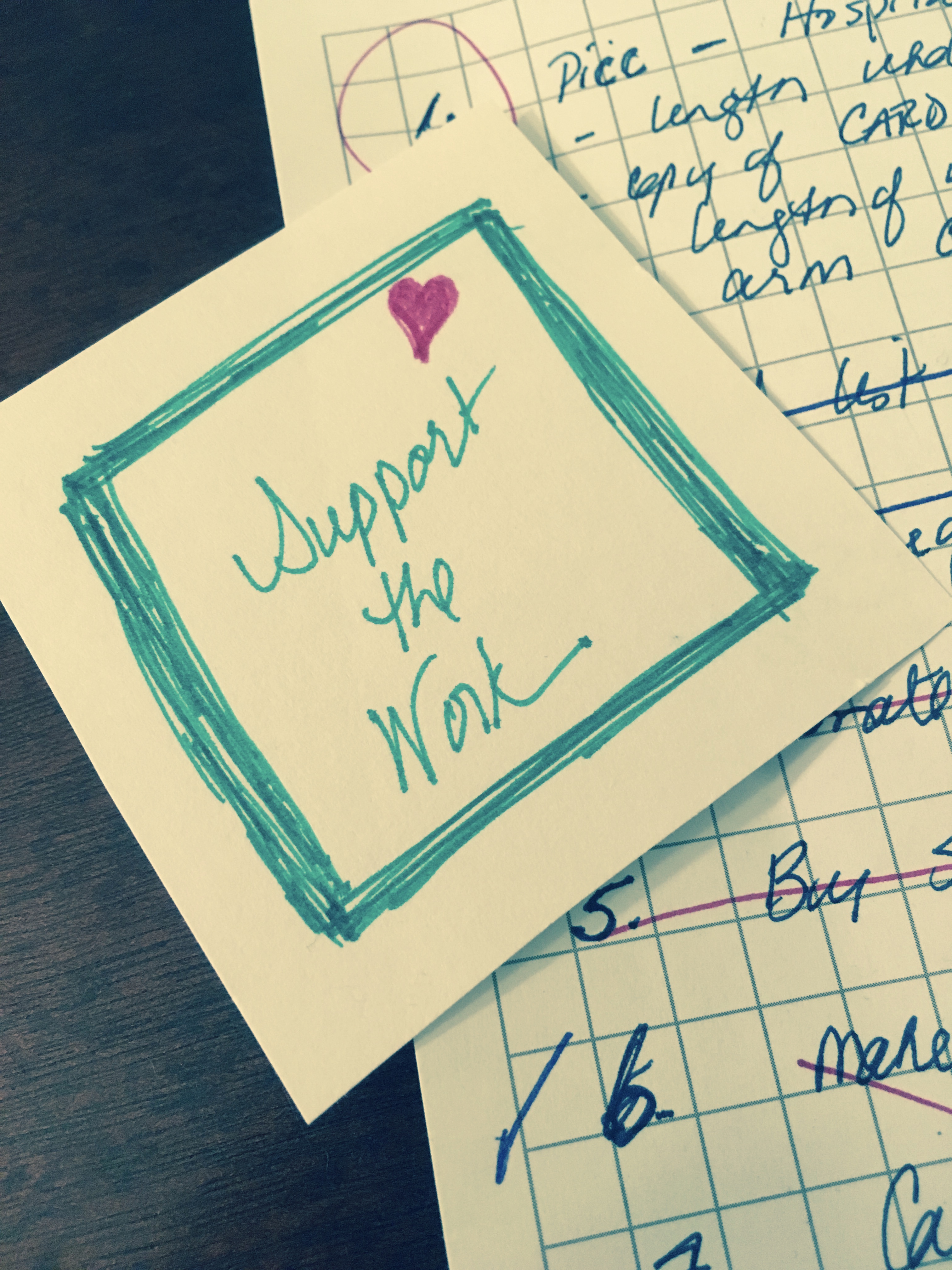Love Bite Diary #3: Some Practical Advice from the Dash
 Sunday, June 19, 2016 at 1:56PM
Sunday, June 19, 2016 at 1:56PM  Elisabeth Veltman, The Tender Foodie tagged
Elisabeth Veltman, The Tender Foodie tagged  Lyme Disease,
Lyme Disease,  Lyme Tips
Lyme Tips  Email Article
Email Article  Print Article in
Print Article in  Athletes,
Athletes,  Lyme Disease
Lyme Disease

The Love Bite Diary started as notes to friends. It was therapeutic, as a writer and as a human, to simply express a long held secret. I was struggling in and out of physical functioning and brain firing, but my friends made it feel safe to write, and encouraged me to do so, when I could. These are friends from all over the world, brought to my laptop through that sorcery called Facebook. Until I catch up, the entries of the diary will not match the dates of the posts, as many entries had to be heavily edited and back dated, after I a great amount of healing - as I was in no shape to write at all for several months. I hope to add the stories of some of the incredible people I am meeting, offer practical advice as I learn and get more on my feet, and eventually interview experts in the treatment of Lyme Disease. And recipes - in time, there will be recipes. In the meantime, I hope you are glad to be on this exploration with me, and that it is helpful to each of you in some way.
~ Thank you, Elisabeth
May 26, 2016
A big update!
I am going to Albany, NY on Sunday and have an appointment with a top Lyme specialist there, Dr. Stram, who works very closely with Dr. Horowitz, an internationally recognized expert who is fully booked, and unable to accept more patients. Although Dr. Minkoff in Florida is another physician who is recognized for his excellent work, I keep hearing success stories about Dr. Horowitz’s protocol, and when a last minute appointment opened up with Dr. Stram, who uses this protocol, I grabbed it. It appears that the Lyme has traveled to my heart and lungs, and this is the urgency that is pushing me to find exactly the right physician and do it quickly. Thanks to you all, I have enough money to at least get started with him and to be able to jump on this appointment, and am acting on faith that the rest will come in as needed. Sue keeps telling me to stop thanking her, but she will have to put up with eternal gratitude for everything that she has done and is doing. Thank you, Sue. And thank you to everyone who has stepped in to help in some way. I feel supported and loved, and grateful.
Important Information from the Experts
As I learn for myself, it is clear that we all need to learn more about Lyme Disease. Here is some excellent information from Dr. Richard Horowitz, M.D., the physician mentioned above. He is the New York Times Best Selling author of "Why Can’t I Get Better? Solving the Mystery of Lyme and Chronic Disease." Lyme is on the rise, so please read and share the article below. This is one bug bite that .... if you are informed and act quickly ... if you get the right physician and the right treatment for the specific infections that were transferred.. and get that treatment for a long enough period of time (longer than the CDC suggests) ... you can beat Lyme and many of its co-infecitons. If you don't, the consequences can be devastating and life changing beyond belief.
The Lyme disease debate: Can the condition be chronic?
Read or listen to the interview in full, but here are some of the highlights:
Dear Medical Community, Stop Fighting and Start Learning
There are two sets of guidelines for diagnosing and treating Lyme. One is by the Infectious Disease Society of America (IDSA) and the other is by ILADS — Dr. Horowitz was one of the founding members of ILADS, the International Lyme and Associated Disease Society. Here is what he says about the controversy:
These two guidelines are different. One says the tests are reliable and you can cure it with 30 days, and the other guidelines say you can't. Right now, the IDSA are redoing their guidelines. The Lyme groups have sent extensive scientific references to the IDSA on how poor the testing is and that Lyme can exist … the controversy, the politics of Lyme now that [are] really interfering with doctors knowing what to do, but we really need to put our swords aside, because we're in the middle of an epidemic. This is the No. 1 vector-borne spreading epidemic in the U.S.
Some Quick, But Essential Facts
1. More ticks are coming out 3 weeks earlier than usual as our planet warms up
2. The ticks that carry Lyme diseases are younger than before and are so tiny that you can hardly see them - called nymphs
3. Ticks now carry many types of Lyme related diseases - over 100 different types of Lyme in the United States, and over 300 world wide. Just in one tick bite, you can get infected with multiple organisms
4. PREVENTION: Some of the different type of co-infections are Lyme related pneumonia; Babesia, which is a malaria like infection; ehrlichiosis, and many more because of migrating birds, deer, and mice carry ticks with ease from country to country and state to state. There are also NEW co-infections showing up:
You need to do prevention because one of the viruses we're now finding, the Powassan virus can get into your body within 15 minutes of a tick bite, and the mortality rates are 10 to 15 percent — up to 30 percent in some studies. So you could get multiple viruses … relapsing fever bacteria, a malarial organism like babesia, with one tick bite. It overwhelms the immune system and that's one of the reasons people don't get better. ~Dr. Horowitz
5. Lyme is called, "The Great Imitator" because it is a multi-systemic disorder (affects many systems in the body) and can affect each patient uniquely. Alzheimer's, Multiple Schlerosis (M.S.), fibromyalgia, chronic fatigue syndrome (CFIDS) / M.E., psychiatric disorders like Schizophrenia, ALS, even anxiety and depression. Dr. Horowitz has seen patients with each of these diagnoses get better when treated for Lyme and its co-infections.
6. Send any ticks that you find and suspect that it has bitten you or your pet to a lab for testing. Most state health departments have a form on their sites that you can fill out and send the tick in a vial for testing.
7. Lyme Disease is a clinical diagnosis. Why? Testing is not sensitive enough, not complete enough, and is often inaccurate. If your test comes back negative, yet you have symptoms such as recurring fever, chills, migrating pain, fatigue, sudden memory lapses, muscle aches and weakness, headaches, numbness, burning, joint pain - these are classic signs of the beginning stages of Lyme and also several of the co-infections. . . you may still have Lyme.
8. Less than half of us get a rash when bitten. SO. Whether you have a rash or not, or if you find a tick that is tough to remove or engorged, or if you have symtpoms of Lyme, go see a Lyme literate physician and discuss getting started with antibiotics before any tests come back.
Q: So say I get exposed to Lyme disease and I don't realize it, time goes by, now it's a year later … can I get better?
A: Yes, you can. There is hope for people with chronic Lyme. I've found that there's up to 16 reasons why people stay ill with Lyme. One of the largest parts are these co-infections in the ticks like babesia. Over 80 percent of the time, this malarial organism — it's a parasite — it's getting into people, making them sick … the [patients] who have day sweats, night sweats, chills. I had a woman in a wheelchair for six years paralyzed from the waist down ... within 10 days of treating the babesia with antibiotics and antimalarial [drugs], she was walking.
Lastly, to end this on a positive note, if you are outside, wear light colored clothing so you can see any ticks that might happen upon you. DO TICK CHECKS. Remove the tick with a tweezers but don't squeeze it - this could actually inject organisms into your blood stream! Read more about what Dr. Horowitz says about prevention so that you can enjoy the summer! He recommends types of sprays and how to use them.
Here is the article again: Read it and watch his interview.










